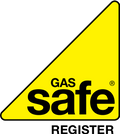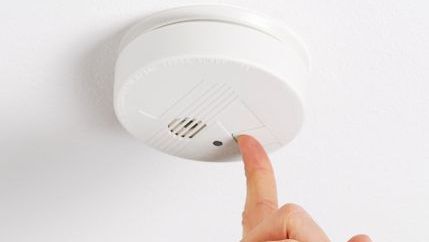Complete an annual safety check
This will help you find a suitable time with your tenant to carry out the check and comply with the law. Keep on track with your safety checks by setting up a free reminder at StayGasSafe.co.uk
If the tenant has their own gas appliances, you are still responsible for maintaining the pipework but not the appliance itself or any flues that solely connect to tenant-owned appliances.
Maintain any Pipework, Appliances and Flues
It is also your responsibility to make sure that any gas pipework in the property is maintained and kept in a safe condition. Regular inspections will highlight any repairs you need to make. To minimise disruption it is good practice for an engineer to inspect and test the pipework between tenancies.
It’s worth noting that installation pipework is not covered by the annual gas safety check, so ask your engineer to carry out a tightness test on the gas system and visually examine the pipework for any defects.
Before the tenancy starts
Before you let your property you need to make sure that all the gas equipment—including any appliances left by a previous tenant—are safe. If this is not the case, make sure you get it fixed or removed before a new tenant moves in.
Keep a gas safety record
A record of the annual safety check will be issued by the Gas Safe registered engineer. You must give a copy of the record to your tenant within 28 days of the check being completed, or to a new tenant at the start of their tenancy.
You will need to retain copies for at least two years. You can keep your records electronically provided you can issue a hard copy if requested, they're secure from loss and interference and clearly identify the engineer who issued the record.
Landlord electronically tagged after gas safety negligence put tenants' lives at risk
The culprit claimed she could not afford to carry out maintenance at the property, and ignored an Improvement Notice and further requests from the Health and Safety Executive (HSE). For several years, tenants at the property were forced to put up with a temperamental boiler that often left them without heating or hot water, as well as a condemned cooker. An HSE investigation found that the landlord was receiving full rent from the tenant at the time enforcement action was taken.
Danger, do not use warnings
Since January 2013, flues that remove fumes from a room sealed, fan-assisted boiler which are concealed in a void, (e.g. in a ceiling, behind a wall or within boxing) must have suitably sized inspection hatches installed so that the entire length of the flue can be inspected by a Gas Safe registered engineer.
If a flue is inaccessible, or the hatches are not positioned correctly or of adequate size to allow the entire flue to be inspected, the engineer will classify the appliance as ‘at risk' and apply a ‘Danger safety warning do not use’ label to the appliance.
If an engineer has turned an appliance off and issued a warning notice, the appliance must not be turned on under any circumstances. The ‘Do not use’ sticker must not be removed until an engineer has rectified the defects—your tenant has a duty not to use the appliance.
If a heating appliance has been disconnected, you must provide your tenants with emergency heating whilst arranging for appropriate remedial work to be done.
Issues gaining access
The tenancy agreement should specify that access must be granted for maintenance or safety checks to be carried out but you must not use force to enter the property.
If your tenant is refusing access, you must keep a record of all the reasonable action you have taken to comply with the law. Make sure you can provide evidence of repeated attempts to carry out the safety check by writing to your tenant and explaining that a safety check is a legal requirement in place for their own safety.
More landlord safety guides
Safety responsibilities for landlords
To help you get to grips with what’s expected, we have outlined the main safety concerns you must be aware of and the legal obligations you must adhere to.
Electrical safety standards
The electrical safety standards for the private rented sector in England came into force on 1 June 2020 and applies to all new tenancies from 1 July 2020 and all existing tenancies from 1 April 2021. The regulation sets out new rules for landlords to ensure all fixed electrical installations are safe and maintained correctly.
Find your local property expert

According to independent YouGov research, most people turn to a local agent for advice and the most trusted local agents are those who are qualified and belong to a professional body. Our members are spread across the UK so use the search below to locate your nearest agency.

YouGov research conducted on behalf of Propertymark in January 2025 with 1012 consumers involved in property transactions in the last 12 months, showed the largest proportion (55%) chose a local property agent for advice and 60% said the most important qualities were holding a regulated qualification and belonging to a professional body.



